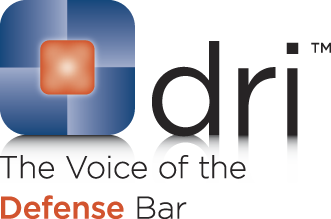No one is surprised when people who are hurt in accidents go to the doctor’s office for care. In the past, many went to doctors who provided them care through their group health insurance programs. These group healthcare providers usually have pre-negotiated reimbursement agreements with the group health insurance carriers. Those insurance carriers pay the providers a sum certain for each service provided. The pre-negotiated reimbursement agreements normally prevent the doctors from charging the patient more than the agreed reimbursement rate.
The question presented in the cases of Howell v. Hamilton Meats & Provisions, Inc., 52 Cal. 4th 541, 257, P.3d 81, 128 Cal Rptr. 3d 658 (2011) and Haygood v. Escabedo, Slip Op. No. 09-0377 (Tex. Sup. Ct. July 1, 2011) is whether a defendant should be obliged to compensate the plaintiff for that difference between the doctor’s negotiated rate and the higher reimbursement rate that the provider would charge to someone who didn’t have insurance. Even though the two courts followed different lines of reasoning, both reached the same conclusion. Both courts said that Plaintiffs could recover from Defendants no more than the rate the doctor had negotiated with the health carrier. The Plaintiff could not recover the higher un-negotiated rate because the Plaintiff never paid that higher amount.
While Defendant’s and their attorneys may be celebrating these opinions, the fallout from these cases is easy to anticipate. Plaintiffs’ attorneys will now have even more reason to encourage their clients to get their care from providers that are in the business of treating people who are injured in accidents. In other words, more Plaintiffs will be seeking care on liens. And without a doubt, the price of the lien care is going to be higher than the negotiated reimbursement rates authorized under a group health contract.
So how does a good Defense attorney challenge the Plaintiff’s decision to choose the higher priced care over lower priced care that is available to her? Usually the collateral source rule will prevent the defense from arguing to the jury that the Plaintiff failed to get the lower priced care from her own lower priced health insurance provider. One tried and true attack is to challenge the credibility of the lien care provider as biased. But what else can the defense do where the charges are out of line?
One choice is to obtain a medical bill audit. Medical bill audits can be basic or in depth. Basic medical bill audits will look simply at the bills to make sure that there are no duplicate charges and will determine whether charged amounts were within the “usual and customary” range of charges in the geographic area where the services were provided. More in depth audits could also include a review of the medical records to insure that the providers delivered the services for which they billed. Depending on the amount you want to spend, the medical bill auditors can provide a great amount of information from their review of the medical bills and records.
Obviously, the defense can use these audit reports as negotiating points, in arbitrations and mediations. However, if the matter is headed to trial, the defense is going to need an auditor that has the willingness and ability to take the stand and testify in support of the work that the auditor has done. Finding the right auditor should start with that fact in mind.
With an increasing percentage of Plaintiffs receiving their care on liens, Mills & Associates predicts that medical bill audits will become even more useful than they have been in the past. In a recent case that we handled, Plaintiff had presented past bills in excess of $725,000. The auditors that we used found almost $300,000 in reductions in charges.
Please contact Mills & Associates to discuss how best to select and use medical bill auditors in the defense of your claim.
 Follow
Follow Email
Email


